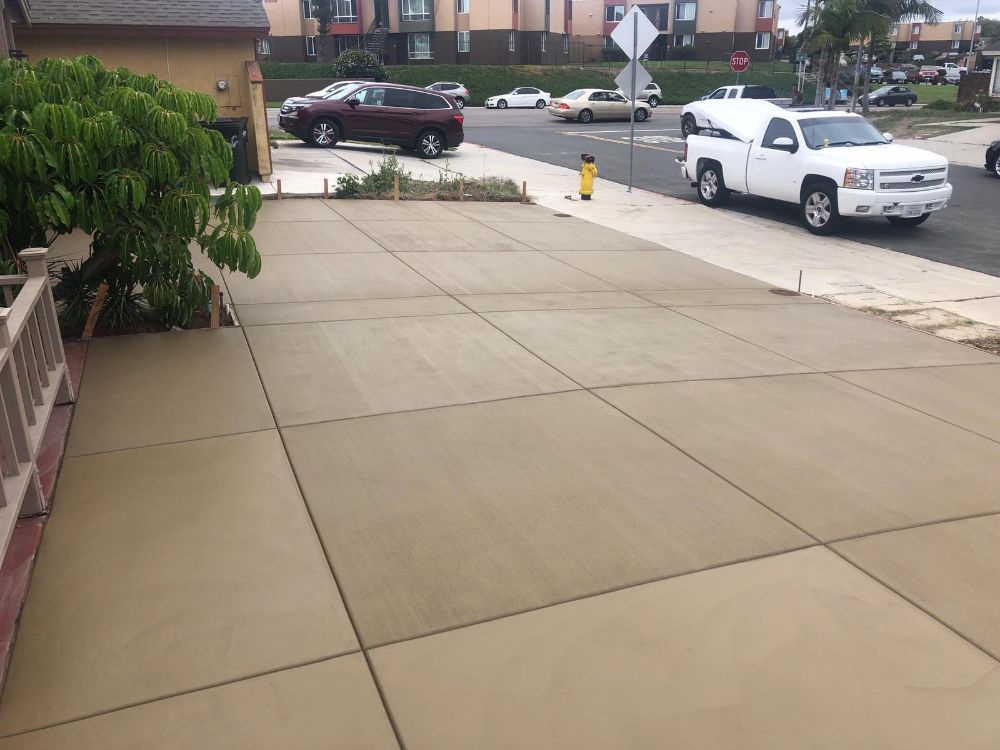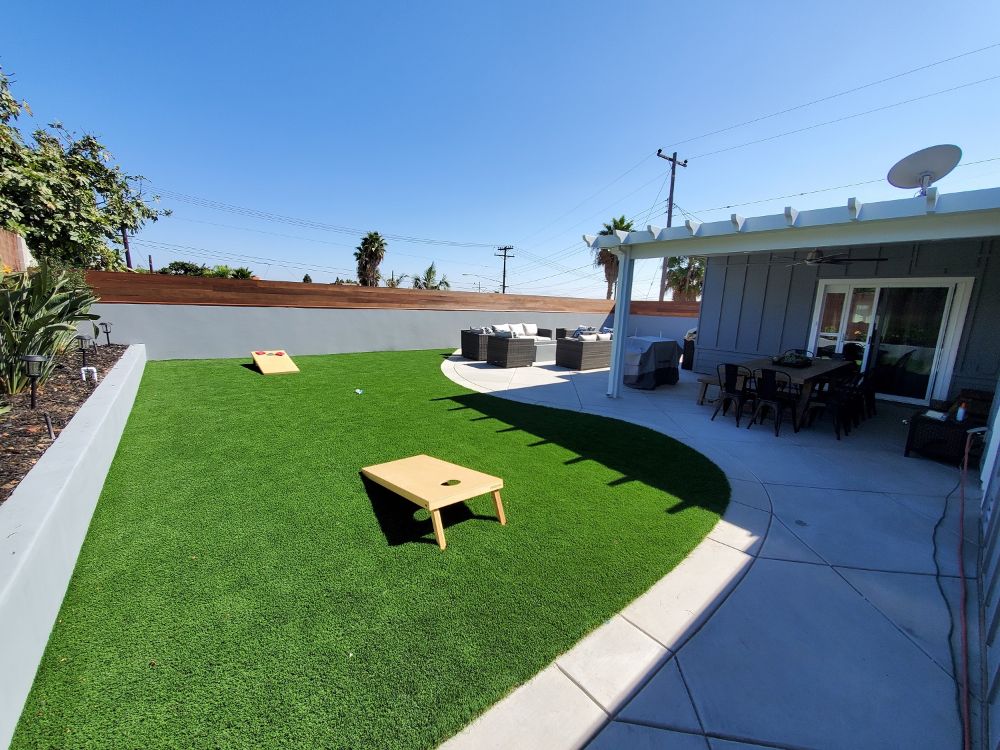
Concrete slabs are the foundation of modern construction. They make the bases of homes, businesses, and factories solid and stable. How long and how strong a building is depends a lot on how good its concrete floor is. Expert concrete slab builders are significant because they use their precision and skill to build lasting structures. The purpose of these contractors, how vital their work is, and how to choose the best professional for your building needs are all covered in this in-depth guide.
What is a Concrete Slabs?
Concrete slabs are common in modern constructions. It is a flat, horizontal surface made of cast concrete. Slabs are used to create the floors and ceilings of buildings or as the base for the ground floor of a house built on soil. Depending on their intended use and the load they will carry, they can vary in thickness, size, and reinforcement.
There are different types of concrete slabs, including:
- Monolithic Slabs: These slabs are poured all at once and are used where the ground doesn’t freeze.
- Stem Wall Slabs: These involve a concrete wall foundation that supports the slab and is used in areas where the ground may freeze.
- Floating Slabs: These are used for sheds and garages; they “float” on the ground without being secured to the foundation walls.
The Role of Concrete Slab Contractors

Concrete slab contractors specialize in laying slabs. They ensure the slab is properly mixed, poured, leveled, and finished. Here’s what their work typically involves:
- Site Preparation: Before pouring concrete, contractors must prepare the site. This includes grading the ground, compacting the soil, and ensuring proper drainage.
- Form Building: Contractors build forms to hold the concrete in place while it sets. These forms outline the shape and size of the slab.
- Reinforcement: To strengthen the slab, contractors install reinforcement materials such as steel rebar or welded wire mesh.
- Mixing and Pouring Concrete: The concrete must be mixed to the right consistency and poured into the forms. Contractors must work quickly to spread and smooth the concrete before it starts to set.
- Finishing: Once the concrete is poured, it’s leveled and smoothed to the desired finish. Special techniques and tools are used to create different textures or add colors.
- Curing: After the concrete is finished, it needs time to cure. Contractors ensure the slab is kept moist and at the right temperature to reach optimal strength.
The Importance of Professional Concrete Slab Contractors
The quality of your concrete slab significantly impacts the structural integrity of whatever is built upon it. Here’s why professional contractors are essential:
- Expertise: Contractors have the knowledge and experience to choose the right slab type, materials, and reinforcement for your project.
- Equipment: Professionals have the necessary tools and machinery to efficiently mix, pour, and finish concrete slabs.
- Quality: Experienced contractors know how to avoid common problems like cracking, uneven surfaces, or weak spots in the slab.
- Compliance: Contractors are familiar with building codes and regulations, ensuring that the work complies with local and national standards.
Choosing the Right Concrete Slab Contractor

Selecting a concrete slab contractor is a crucial decision. Here are some ideas to help you pick the right one:
- Experience: Look for contractors with a proven track record of completing projects similar to yours.
- Licensing and Insurance: Ensure the contractor is licensed to perform concrete work in your area and has liability insurance and workers’ compensation.
- References and Reviews: Ask for references and read online reviews to gauge past clients’ satisfaction.
- Quote and Contract: Get detailed quotes from several contractors and ensure you have a clear contract before work begins.
- Communication: Before hiring a contractor, be sure they are able to communicate effectively and are receptive to your inquiries and worries.
Trends and Innovations in Concrete Slab Construction
The field of concrete slab construction is not static; it evolves with new technologies and methods that improve efficiency and performance. Some of the latest trends include:
- High-Performance Concrete: Advances in concrete mixtures result in stronger and more durable slabs.
- Green Concrete: There’s a growing emphasis on using sustainable materials and reducing the carbon footprint of concrete production.
- Laser-guided Tools: For precision leveling and finishing, contractors now use laser-guided tools and machinery.
- Insulated Concrete Forms (ICF): These forms shape the concrete and provide insulation, improving the energy efficiency of buildings.
Preventive Measures and Maintenance

Once a concrete slab is installed, it’s crucial to maintain it properly to prolong its life. Here’s what you need to know:
- Sealing: Concrete should be sealed to protect against moisture, chemicals, and wear.
- Cleaning: Regular cleaning helps prevent stains and deterioration.
- Monitoring: Keep an eye on your slab for signs of cracking or movement, as these could indicate structural problems.
Common Challenges and How Contractors Overcome Them
Concrete slab contractors often face challenges that they must overcome to ensure a successful installation. These can include:
- Weather Conditions: Concrete pouring is highly dependent on weather conditions. Contractors must be prepared to adapt to temperature changes, precipitation, and humidity, which can affect the curing process.
- Subgrade Issues: The quality of the subgrade, the soil beneath the slab, is crucial. Contractors must address issues like poor compaction, organic material, or high moisture content to prevent future slab movement or cracking.
- Timing: The timing of the concrete pour is critical to prevent cold joints, which occur when there is a delay in pouring adjacent concrete sections. Professional contractors manage their schedule and labor force to ensure continuous pouring.
Case Studies: Successful Concrete Slab Projects

Throughout this guide, we have discussed the theoretical aspects of what concrete slab contractors do, but real-world examples can highlight their expertise:
- Industrial Warehouse: A contractor was tasked with creating a large-scale, high-tolerance slab for a warehouse. Using laser screed technology, they achieved a floor that met strict flatness and levelness specifications, enabling the smooth operation of high-rack storage systems.
- Residential Development: A residential contractor was challenged to construct multiple slabs on a site with varying soil conditions. They ensured each home had a solid foundation by conducting thorough soil testing and designing each slab with appropriate reinforcement.
Key factors to consider when choosing a concrete slab contractor

Choosing the right concrete slab contractor is crucial to ensure that your project is completed efficiently, effectively, and to the highest standard. Here are some key factors to consider when making your selection:
1. Experience and Expertise
Track Record: Look for a contractor with extensive experience in laying concrete slabs, especially for projects similar to yours.
Specialization: Some contractors may specialize in certain types of concrete work, such as residential, commercial, or decorative slabs.
2. Licensing, Bonding, and Insurance
- Licensing: Ensure the contractor has the necessary licenses to perform concrete work in your area. This demonstrates that they have achieved specific standards within the sector.
- Insurance: Make sure they have liability insurance to protect against any accidents or damage to your property.
- Bonding: A bonded contractor provides a guarantee that the job will be completed as per the contract, which can give you peace of mind.
3. Reputation and References
- Customer Reviews: Check online reviews and testimonials to assess the contractor’s reputation.
- References: Ask for references from past clients to get firsthand accounts of their experience with the contractor.
4. Detailed Quotes and Contracts
- Transparent Pricing: A reliable contractor will provide a detailed quote that breaks down the costs of materials and labor.
- Contract Clarity: The contract should clearly outline the scope of work, timelines, payment schedules, and any guarantees or warranties.
5. Quality of Materials and Equipment
- Materials: Inquire about the types of materials they use and ensure they are high-quality and suitable for your project needs.
- Equipment: Check if the contractor has access to modern and well-maintained equipment to perform the job efficiently.
6. Professionalism and Communication
- Communication: Choose a contractor who is responsive and communicates clearly throughout the entire process.
- Professionalism: They should conduct themselves in a professional manner, including punctuality, courtesy, and respect for your property.
7. Project Management Skills
- Scheduling: The contractor should be able to provide a realistic timeline for the completion of the project.
- Coordination: They should have the ability to coordinate with other contractors on the project if necessary.
8. Compliance with Codes and Regulations
- Building Codes: The contractor should have in-depth knowledge of local building codes and ensure that all work is compliant.
- Permitting: Verify that the contractor will obtain all necessary permits before starting the project.
9. After-Service
- Warranty: Check if the contractor offers a warranty on their work and understand the terms and conditions of the contract.
- Follow-Up: A good contractor will be willing to follow up on their work after completion to ensure customer satisfaction.
10. Environmental Practices
- Sustainability: If environmental impact concerns you, look for contractors who use eco-friendly practices and materials.
By considering these factors, you can make an informed decision and choose a contractor who will deliver a durable and well-constructed concrete slab for your project. Remember, the lowest bid isn’t always the best choice; the balance of cost, quality, and service often leads to the best results.
Conclusion: Your Project and Rhino Concrete Lafayette
Concrete slabs are the bedrock of construction projects, and the quality of your slab is only as good as the contractor you choose. As this guide has shown, a professional contractor brings expertise, equipment, and experience to the table, ensuring your slab is built to last.
If your project is in the Lafayette area and you’re seeking a concrete slab contractor with a reputation for excellence, look no further than Rhino Concrete Lafayette. Our team of seasoned professionals is committed to delivering top-quality concrete slabs that stand the test of time. We stay abreast of the latest trends and innovations in the industry, ensuring that we offer our clients the best solutions for their projects.
At Rhino Concrete Lafayette, we understand the importance of your investment. We work closely with you from the initial consultation to the final curing stage, ensuring every step is executed flawlessly. With Rhino Concrete Lafayette, you can expect a seamless process, clear communication, and a concrete slab as a solid foundation for your endeavors.
For a reliable, high-quality concrete slab that aligns with your project’s specifications, timelines, and budget, contact Rhino Concrete Lafayette. Let us help you establish a foundation for your future success.







